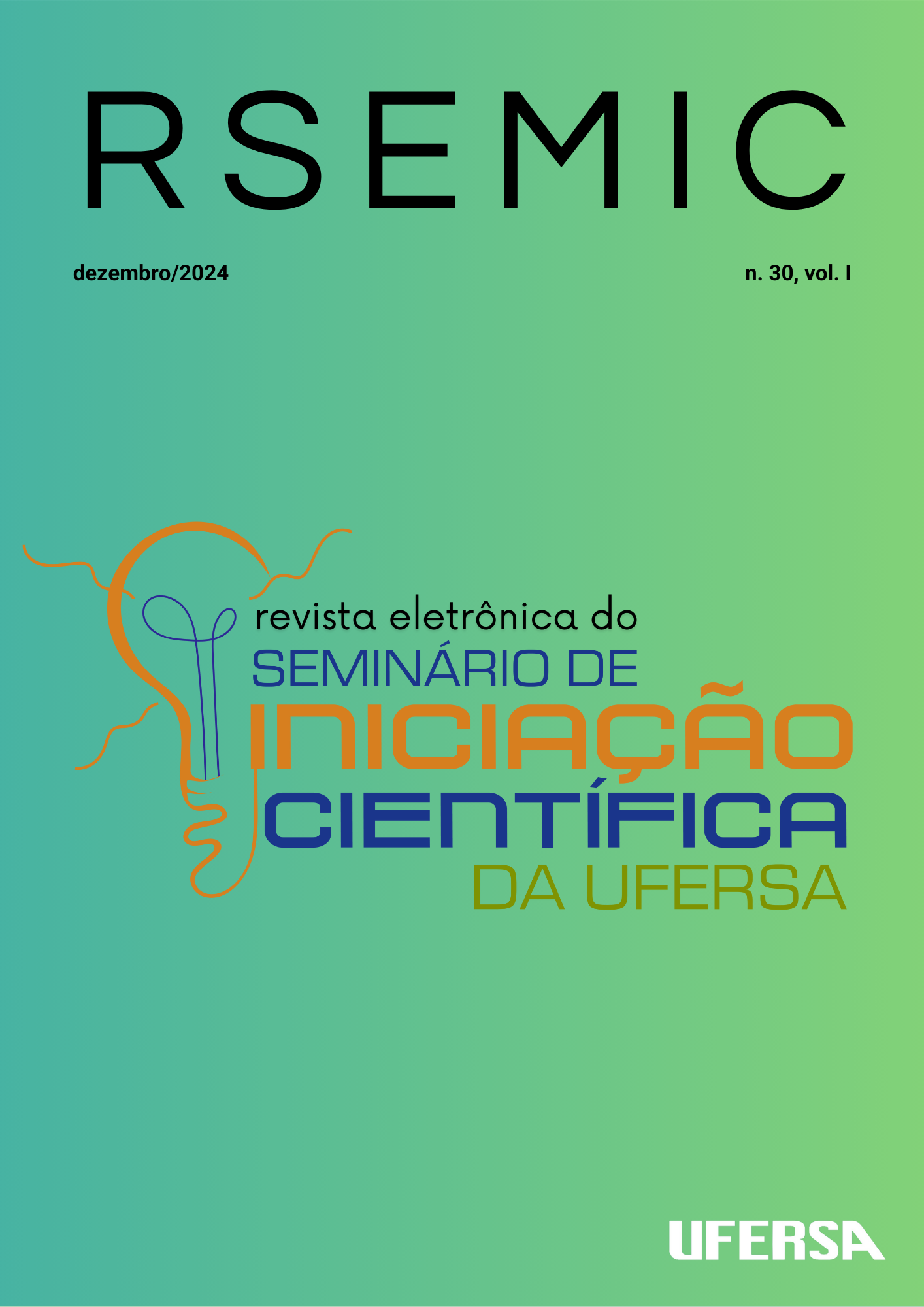Extrato pirolenhoso como atenuador do estresse salino em plantas de pitangueiras (Eugenia uniflora L.)
Palavras-chave:
Eugenia uniflora L., salinidade, crescimento de plantasResumo
Eugenia uniflora L., popularly known as pitangueira, is a plant native to South America, valued for its nutritious fruits and medicinal properties. Although it adapts to different climatic conditions, the cherry tree faces challenges such as saline stress, which can harm its growth and productivity. Research with pitangueira seedlings took place in a greenhouse, at the Universidade Federal Rural do Semi-Árido, located in Mossoró, RN. The objective of the research was to evaluate salinity responses in pitangueiras and the use of pyroligneous extract as attenuator of growth characteristics. The experiment was conducted in a randomized block design, in a 4 x 3 factorial scheme, with four replications, totaling 48 experimental units, one plant per plot. The treatments resulted from the combination of four salinity levels of control water (0.5; 2.5; 4.5 and 6.5 dS m-1) with three concentrations of pyroligneous extract (0; 1 and 2% v/ v), applied via control water. Treatment with pyroligneous extract at a dose of 2% proved to be effective in enhancing the beneficial effects under salinity of 2.5 dS m−1 on seedlings, promoting significant improvements in the number of leaves, root dry mass and total dry mass . Increasing salinity levels (4.5 and 6.5 dS m−1) in buffer water impaired the prevention of growth characteristics such as plant height, stem diameter, number of leaves, and leaf area.

